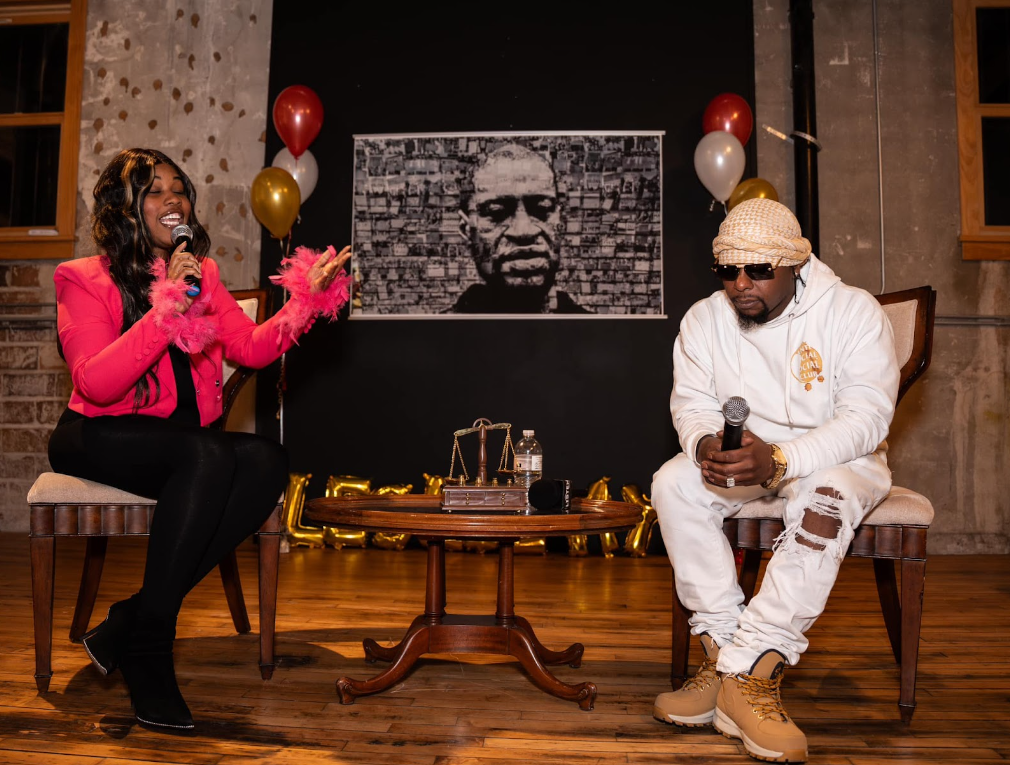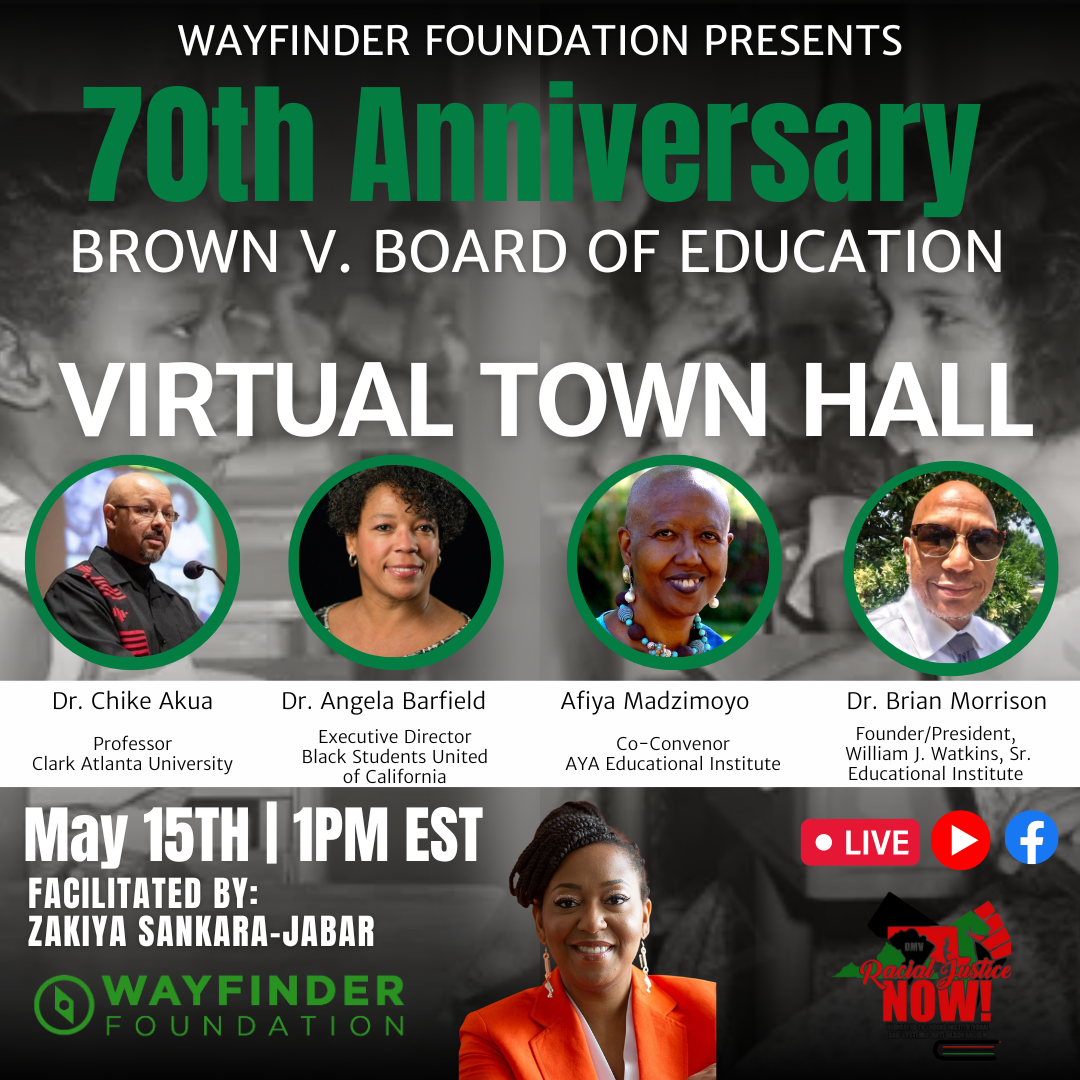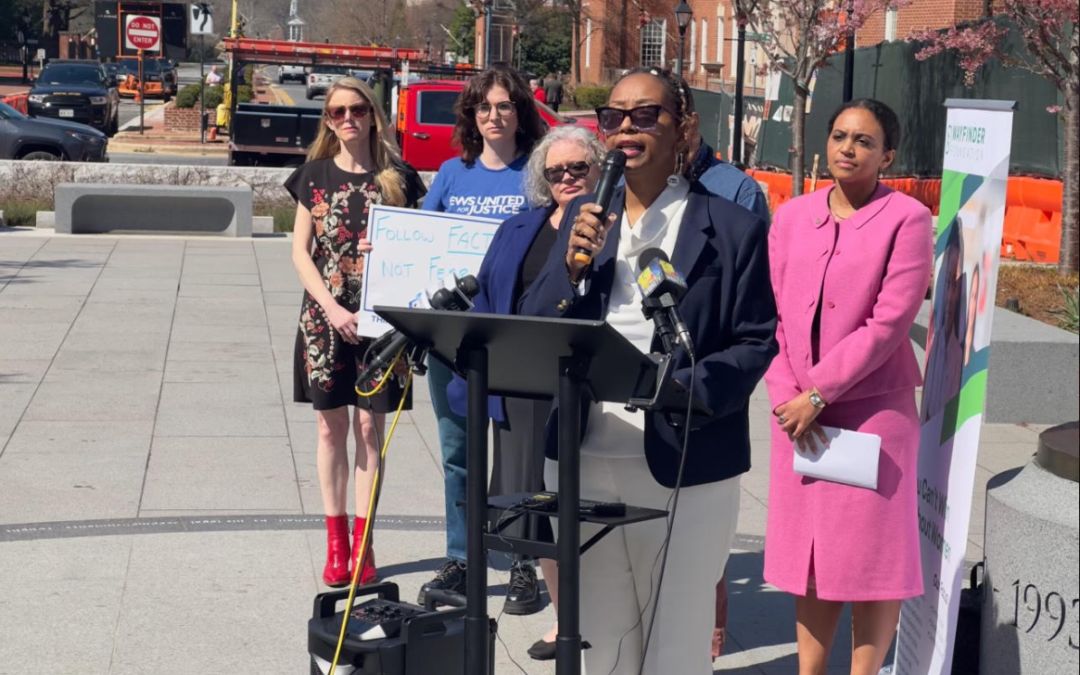Rallying for Change: Voices Unite in Support of Juvenile Justice Reform
In the wake of mounting concerns over the effectiveness and fairness of juvenile justice systems nationwide, legislators have embarked on a pivotal journey towards reform. With a flurry of bills sweeping through legislative chambers, the spotlight now shines brightly on reshaping the landscape of juvenile justice. These bills represent not only a response to systemic flaws but also a beacon of hope for a more equitable and rehabilitative approach to youth offenders. As policymakers delve into the intricacies of these proposed reforms, the overarching goal remains clear: to forge a path that prioritizes the well-being and future prospects of young individuals entangled within the justice system.
Zakiya Sankara-Jabar, Wayfinder’s Director of Education Policy and Activism, organized a powerful press conference in Maryland last month outside of the legislature to share concerns from community members, advocates, and experts in the field regarding an oppressive juvenile justice bill that was passed by the House and the Senate. The press conference aimed to highlight the importance of centering the voices of children and ensuring they receive the necessary support and interventions, instead of harsh criminal punishment. By bringing together a diverse group of stakeholders, Sankara-Jabar hopes to influence education policies that prioritize the well-being and development of Black and Brown children.
Nekima Levy Armstrong, Wayfinder Executive Director participated in the press conference and was quoted as saying, “Why would we be treating 10-year-olds, 11-year-olds, and 12-year-olds as if they’re mini adults capable of making the same types of decisions as adults? Our children need guidance. Our children need support. Our children need interventions.”

Justice Denied: Unpacking the Toll of Wrongful Convictions on Black Communities
Wrongful convictions cast a long shadow of injustice, their impact reverberating deeply within Black communities. Beyond the tragedy of innocent lives being derailed, these miscarriages of justice underscore systemic biases and disparities within the criminal justice system. For Black communities, already burdened by historical inequities, wrongful convictions deepen wounds of mistrust and disillusionment. The consequences extend far beyond the innocent individual, affecting families, and exacerbating economic inequality. Each wrongful conviction not only robs the innocent of their freedom but also perpetuates racial bias and injustice, eroding the very foundations of trust and equality. Thus, addressing wrongful convictions is not merely about correcting past mistakes but about rectifying systemic injustices that continue to disproportionately impact Black lives.
Last month, Wayfinder alumna and attorney, Leslie Redmond joined Myon Burrell in highlighting these often-ignored concerns. Their advocacy sheds light on the urgent need for reform in the criminal justice system to ensure that all individuals, regardless of race, are treated fairly and justly. By amplifying their voices, we can work towards a more equitable and just society for all. Their efforts serve as a reminder that systemic change is necessary to prevent future wrongful convictions and ensure equal access to justice. It is crucial for individuals and communities to continue advocating for reform and holding those in power accountable for upholding principles of fairness and equality in the criminal justice system.

70 Years Later: Reflecting on Brown v. Board of Education and the Ongoing Struggle for Educational Equality
Next month, Wayfinder Foundation will examine the historic implications of “Brown v. Board”, the current state of Black education, as well as best practices for addressing educational inequities from a public policy perspective.

